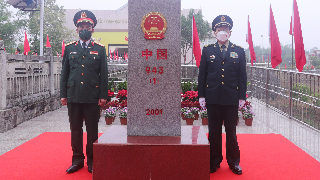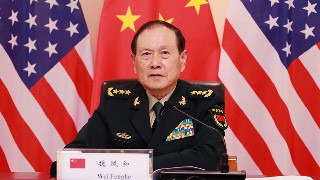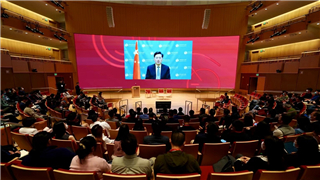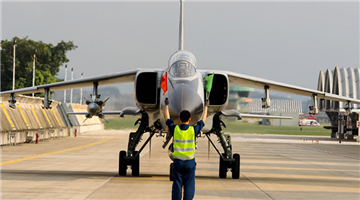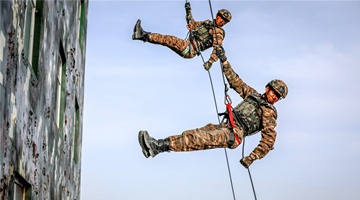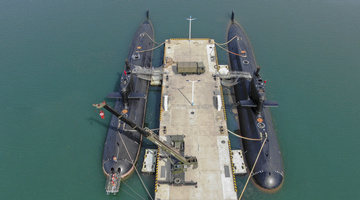By Xu Ziwen
Japan's Yomiuri Shinbun reported that the Liberal Democratic Party (LDP)'s Research Commission on Security, which was chaired by former defense minister Itsunori Onodera, recently proposed to revise the National Security Strategy, the National Defense Program Guidelines, and the Mid-term Defense Program. It called for increasing Japan's defense expenditure to 2% of GDP, the standard for NATO members, in the next five years.
Hurried revision
The National Security Strategy, the fundamental guidebook on Japan's diplomatic and defense policies, will have its first revision since being formulated in 2013.
Fan Xiaoju, director of the Institute of Northeast Asian Studies at the China Institutes of Contemporary International Relations (CICIR), said in an interview that the revision is a step taken by Japan toward its goal of becoming a major military country when the international situation is going through fast changes. It reflects the Japanese right-wing forces' attempt to break through the limitations imposed by the Peace Constitution by hyping up international tension and consequently become a "normal" country.
The Research Commission on Security explicitly proposed to increase the defense spending to over 2% of GDP within five years, the first time a timeline was set for reaching the percentage. "Setting the five-year term indicates that some political forces in Japan reckon that the Russia-Ukraine conflict has turned international and domestic public opinions in favor of realizing such a goal. Besides, Germany, another losing country in WWII, has already put forth the 2% goal, making Japan all the more eager to seize the opportunity and make some substantial progress on the defense front," said Fan Xiaoju.
Constant crossing of line
In addition to increasing defense expenses, the draft also considered allowing "enemy base strike capabilities" that are aimed at crippling an enemy missile launch base as an act of self-defense, the target of attack not limited to the missile base, but also including commanding centers. Kyodo News reported that the Research Commission on Security also suggested loosening the "Three Principles on Transfer of Defense Equipment and Technology" on the excuse of the Russia-Ukraine conflict.
"In recent years, Japan has kept crossing the line on military expansion and constitutional revision, which is closely related with the changes both in the international environment and in its own domestic political ecology." According to Fan, Japan is consistently worried about the uncertainties stemming from the "asymmetric relation" within its alliance with the US. As the US never makes a clear commitment as to how far it will go to protect Japan, many Japanese political elites have turned from relying on America's one-way protection of Japan to "joint defense" between the two countries. On the other hand, the conservative right-wingers in Japan have been hyping and clamoring about "China threats" for many years just to fabricate the excuse to intensify Japan's military to respond to such "threats". Besides, the opposition parties that are for a peaceful path have become weaker and unable to effectively counterbalance the ruling party on diplomatic and security policies. As a result, the country is going further down the path of military expansion.
A threat to regional peace
It is reported that Japan will also revise the National Defense Program Guidelines that set goals on military development and the Mid-term Defense Program that makes a five-year estimate on defense spending, including how to respond to the security environment that has changed because of the Russia-Ukraine conflict. Some media pointed out that what the LDP really wanted was, to take the opportunity of the conflict and launch a public debate on how to deal with the so-called "emergency state" that might appear around Japan.
"The revision will be a major adjustment of Japan's security strategy and policies, which is intended to emphasize external military threats and allow the country to significantly increase military expenditure and develop aggressive military forces," said Fan. Judging from the current situation, the revision will cause considerable negative effects on the region in the following ways. First, it will aggravate regional confrontation and security status; second, it is likely to escalate a regional arms race; third, it violates Japan's long-held international commitment to following a peaceful path of development and will damage the mutual trust between it and its neighboring countries; and fourth, it will hamper regional cooperation because a political atmosphere conducive to solving hotspot issues and promoting economic cooperation in the region will be hard to form.
Editor's note: This article is originally published on haiwainet.cn, and is translated from Chinese into English and edited by the China Military Online. The information, ideas or opinions appearing in this article do not necessarily reflect the views of eng.chinamil.com.cn.
